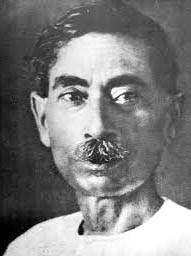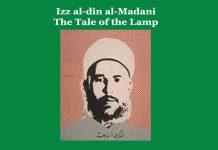Premchand | Deliverance | An Analytical Study
Premchand | Deliverance | An Analytical Study
Premchand | Deliverance | An Analytical Study
The short story entitled ‘Deliverance’ by Premchand deals with the themes of untouchability and class discrimination. It consists of four sections.
In the first scene, we meet with the family background, their economic condition and how they revere a Brahman. Dukhi lived with his wife and a daughter. His daughter is to be betrothed. So he needs the help of the Brahman Pandit Ghasiram to fix an auspicious day for the betrothal of his daughter. But Dukhi and his wife are very anxious and meticulous about how they would receive the Pandit Ghasiram at their house.
As they found some leisure time after their respective household chores, Jhuria, the wife of Dukhi, urges his husband to go to the Brahman Pandit Ghasiram to ask him to come. Dukhi said, ”Yes, I am going, but we have to think about what he’s going to sit on.” His wife said that they would borrow a cot from the village headman’s wife. But Duhki knew that none of his neighbours would lend them a cot. So he suggested his wife wash their own cot and set that out to get dry by the time the Pandit would come to their home.
Jhuria said, ”He would not sit on our cot.” It was because she knew that the Pandit was a stickler about religion as he obeyed the religious rituals very strictly.
Then Dukhi decided to break off some mohwa leaves and make a mat for him. They also decided to manage some food and some other thing to offer the Brahman. Dukhi asked his wife to take Gond’s daughter, a girl of their neighbour, to the village merchant and bring all the things they needed to offer to the Pandit. They decided to collect a full two pounds of flour, half of the rice, a quarter of gram, an eighth of ghee, salt, turmeric, and four annas as an offering to the Pandit.
After these instructions, Dukhi picked up his stick, took a big bundle of grass and went to make his request to the Pandit. He couldn’t go empty-handed to ask a favour of the Pandit. He knew that if the Pandit saw him without an offering, he would shout abuse at him from far away.
Thus in the first scene, we see that Dukhi and his wife are very anxious and sincere about how they would receive the Pandit. Here we see more that how the lower castes of people revere and respect the Brahmans too much.
But in the subsequent sections of the story, we see the hollowness of the so-called Brahmans. The more Duhki and his wife were concerned about the reception of the Pandit the more negligent and opportunist the Brahman appeared to be. Here lies the irony of caste discrimination in Indian society.
After going there, Dukhi saw that Pandit Ghasiram was busy with his daily rituals. After washing his hands and feet at eight o’clock, he would begin the real ceremony of worship, the first part of which consisted of the preparation of bhang. After that he would grind sandalwood paste for half an hour, then with a straw, he would apply it to his forehead before the mirror. Between the two lines of sandalwood, he drew a red dot. Then on his chest and arms, he drew designs of perfect circles. Then he took out the image of the Lord, bathed it and applied the sandalwood to it, decked it with flowers, performed the ceremony of lighting the lamp and rang a little bell.
At that moment Dukhi bowed his head down and said, ”I’m arranging Bitiya’s betrothal. Will your worship help us to fix an auspicious date? When can you find the time?”
The Pandit said, ”I have no time today. But still, I’ll manage to come toward evening.”
Then Pandit took the avail of this situation and set Dukhi to work in his house. He had to carry straw and split a hard piece of wood. All day long he worked hard in hunger. The Pandit and his wife did not care to feed him. Even the Pandit uttered insulting words to him for not being able to split the piece of wood. Then Dukhi set to split the wood with his utmost strength and got exhausted. He fell down on the spot and died instantly. Even after his death, he did not get funeral rituals.
Thus the author Peremchand, in his story ‘Deliverance’ has portrayed the fatal effect of caste discrimination in Indian society with a vigorous force. 0 0 0
Premchand | Deliverance | An Analytical Study
N. B. This article entitled ‘Premchand | Deliverance | An Analytical Study’ An Analytical Study’ originally belongs to the book ‘World Short Story Criticism‘ by Menonim Menonimus. Premchand | Deliverance | An Analytical Study
Books of Literary Criticism by M. Menonimus:
- World Short Story Criticism
- World Poetry Criticism
- World Drama Criticism
- World Novel Criticism
- World Essay Criticism
- Indian English Poetry Criticism
- Indian English Poets and Poetry Chief Features
- Emily Dickinson’s Poetry-A Thematic Study
- Walt Whitman’s Poetry-A Thematic Study
- Critical Essays on English Poetry
- Tawfiq al-Hakim’s Novel: Return of the Spirit-An Analytical Study
- Tawfiq al-Hakim’s Novel: ‘Yawmiyyat Naib Fil Arayaf’-An Analytical Study
- Analytical Studies of Some Arabic Short Stories
- A Brief History of Arabic Literature: Pre-Islamic Period …
Books on Linguistics by M. Menonimus:
- A Brief History of the English Language
- Essays on Linguistics
- My Imageries
- Felicitous Expression: Some Examples
- Learners’ English Dictionary
Related Searches:











